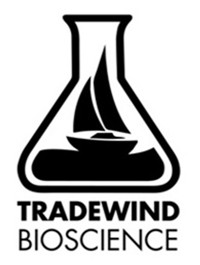|
Tradewind BioScience, Inc. |
||
|
February 18, 2019 Issue |
||
|
CEOCFO MAGAZINE |
||
|
|
||
|
Q&A with Thaddeus Allen, PhD., Founder and CEO of Tradewind BioScience, Inc. building the first Humanized Antibody Therapy inhibiting an Upstream Secreted Protein Target that in Ovarian Cancer can Drive Malignant Progression |
||
|
Founder & Chief Executive Officer
Tradewind BioScience, Inc.
Interview conducted by: Lynn Fosse, Senior Editor, CEOCFO Magazine, Published – February 18, 2019
CEOCFO: Dr. Allen, what was the vision when you founded Tradewind BioScience, Inc.? Dr. Allen: Tradewind BioScience was founded to advance science that came out of two laboratories, one, the lab of Dr. J. Michael Bishop at the University of San Francisco, and the other the lab of Dr. Ron Buckanovich at the University of Michigan. Both labs discovered the same cancer target, and we formed the company to advance a therapeutic around inhibiting it to combat cancer, specifically ovarian cancer.
CEOCFO: What are you targeting? What have you figured out? Dr. Allen: It is a protein that is upstream of a known cancer pathway that people have tried in the past to target, but it has proven incredibly difficult. However, we have found this novel upstream target. That is kind of the secret sauce of the company. In the pre-clinical models where we have tested our prototype antibody therapeutic, we can achieve a profound anti-tumor response. Again, this is by inhibiting this upstream target, whereas in the past people have tried to target this pathway by hitting proteins downstream.
CEOCFO: Would you tell us more about the target and why you would want to target it? In addition, what are the challenges in getting to it? Dr. Allen: It is a secreted protein and in ovarian cancer it can actually drive malignant progression. This does not really fit into the model of a cancer driver that people normally think about, where a gene is mutated and becomes constitutively active as a kinase. It is a unique finding that a secreted protein can drive cancer, in this case ovarian cancer. What we have built is an antibody that binds to this secreted protein and shuts it off. It seems a simple premise, but it is a difficult task to build an antibody that binds to the right epitope on a protein to induce an inhibitory effect. This is what we have managed to do and that is what we are developing as a therapeutic.
CEOCFO: Why and how does the anitbody bind to protein? Dr. Allen: It is an antibody raised specifically against our target protein. Antibodies bind to different regions on a protein called epitopes. Admittedly, like most things in science, we stumbled across an epitope in our antibody development that confers inhibition when bound by antibody. Put another way, our antibody binds a portion of the protein that interferes with binding to its receptors. It blocks its normal function.
CEOCFO: Why with ovarian cancer? Were you looking specifically at that type of cancer? Dr. Allen: That is a good question. Our target is actually in a pathway that is known to be important in multiple cancers. We have great human survival data that indicates it is important in cancers such as lung adenocarcinoma, colorectal adenocarcinoma, and even triple negative breast cancer. We are focused on ovarian cancer because we have evidence that it plays a role from the very earliest stages, by inducing pre-malignant legions, all the way through to metastatic carcinoma. In ovarian cancer, many patients are not diagnosed until they are already metastatic. Our target plays a very profound role in keeping cells alive as they spread around the body. This means that it plays a role in progression to advanced stages, such as stage 4 cancer. We want to shut this off in all stages of ovarian cancer. We think it is the perfect cancer to start with because it has a role at all stages.
CEOCFO: What surprised you as you started testing? Dr. Allen: I already mentioned one of the surprises uncovered in a model that was developed, which is that our target protein can induce the very earliest stages of cancer. In the research I personally conducted, I started off looking for metastasis genes, and it plays a really profound role in metastasis. We really have had to work backwards and think about the primary cancer as well, and one of the surprising things was that it has a profound role at the very earliest stages of cancer development, at least in ovarian cancer.
CEOCFO: Of the members of the medical community who are aware of what you have done, do they believe? Dr. Allen: One of the questions we ask is why there not other people working on this target. There are labs emerging now that have recognized that our target protein is important. However, there are also various reasons why it has remained a hidden target. It is not something that jumps out at people, as it is not significantly mutated or amplified in the cancer genome atlas data sets from the NIH, for example. In addition, the target protein is tough to work with. There are various reasons, but it is not something that if you carry out screens in culture is usually selected for. It only plays a role under conditions of severe stress, but that is exactly what is found in a tumor. It relieves the stress that tumor cells encounter and keeps them alive. Our goal is to shut it off and takeaway signaling to enable cancer cell death, so to speak.
CEOCFO: How do you add something to what the medical community is already considering? Dr. Allen: We are looking to add a new tool to the oncologist’s toolbox. We have looked for biomarkers and we came up with some really interesting data that shows that this therapeutic might work alongside other drug targets. We have the opportunity to design a companion diagnostic based on protein staining. With surgery, tumor samples are usually embedded in paraffin and analyzed for various markers. We could develop a diagnostic that can be used like that too. It could be used to pick out patients in a trial that are perfect for our therapy.
CEOCFO: What is happening today at Tradewind BioScience?
Dr. Allen:
To date we have advanced this first therapeutic to the point where we have a
humanized antibody. It has good affinity and what we are gearing up for is
putting a new and improved antibody in the appropriate and best cancer
models. In cancer, this is patient-derived xenograft (PDX) models. This is
really a milestone for us in terms of moving forward. Our goal is to
eventually move this to the clinic. CEOCFO: How do you garner attention, particularly at conferences where there are so many other pharma companies trying to gain the interest of the medical community and investors? Dr. Allen: That is a really good question. We just presented at the BIO Investor Forum in San Francisco, and we had a great deal of attention when we were there. What garners people’s attention in our case is the fact that we are doing something new. We are not looking to improve on therapies that are already out there. We really are trying to build something that is completely novel, with a novel mechanism of action. In the end it may stand alone as a therapy, but because it has a novel mechanism of action, it could also work with other therapeutics. That is what garners people’s attention. They see that and they realize there is opportunity going forward to use this with other therapeutics in the clinic as well. There is opportunity to tease out some potent anti-cancer combinations.
CEOCFO: Are there any potential side effects that you have found? Dr. Allen: We started testing with injections of our antibody in mice that were not tumorigenic, just to see if there was any effect. There was no toxicity observed with respect to tissue or blood cell homeostasis, so we have not observed any toxic effect to date. The gene that encodes our target protein has been deleted in the mouse genome and there has been trouble recognizing an observable phenotype. Therefore, it does not look like adult tissues need this target per se, so that really bodes well for toxicity.
CEOCFO: Put it together for our readers in the health and investment communities. Why pay attention to Tradewind BioScience? Dr. Allen: We are building this antibody therapeutic for ovarian cancer, but it has implications for other cancers as well. The mechanism of action is completely different than therapeutics currently used. We can target the primary cancer, metastatic tumors and even stop metastasis from spreading further by using the therapeutic antibody we are developing. We can have a huge impact for patients in the future.
|
“We are building this antibody therapeutic for ovarian cancer, but it has implications for other cancers as well. The mechanism of action is completely different than therapeutics currently used. We can target the primary cancer, metastatic tumors and even stop metastasis from spreading further by using the therapeutic antibody we are developing. We can have a huge impact for patients in the future.”- Thaddeus Allen, PhD.
Tradewind BioScience, Inc.
Contact: Thaddeus Allen 415-317-4818 thaddeusallen@tradewindbio.com
|
|
|
disclaimers |
||
|
|
||
|
Antibody Therapeutics in Ovarian Cancer, Tradewind BioScience, Inc., Cancer Stem Cells, Thaddeus Allen, PhD., Building the first Humanized Antibody Therapy inhibiting an Upstream Secreted Protein Target that in Ovarian Cancer can Drive Malignant Progression, CEO Interviews 2019, Drug Development Companies, metastatic cancer, biotechnology, metastasis, therapeutics for eliminating metastatic cancer, San Francisco biotechnology companies, antibody therapeutics for ovarian cancer, Angiogenesis, Anoikis, Tradewind BioScience, Inc. Press Releases, News |
||
|
|
||


 Thaddeus
Allen, PhD.
Thaddeus
Allen, PhD.